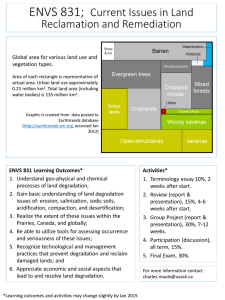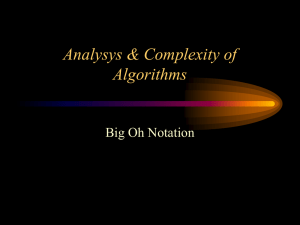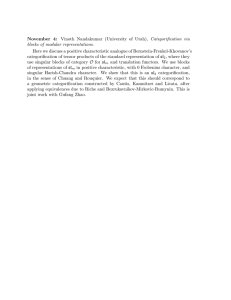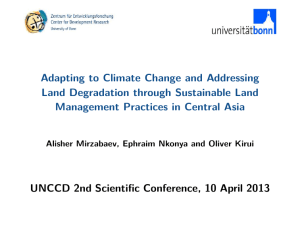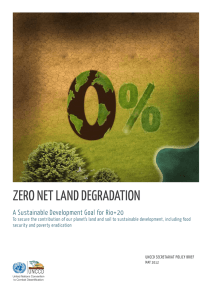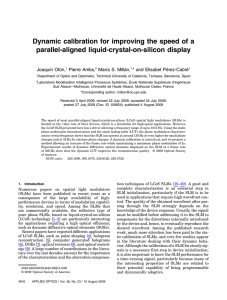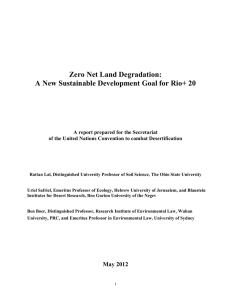UNCCD 2nd Scientific Conference
advertisement
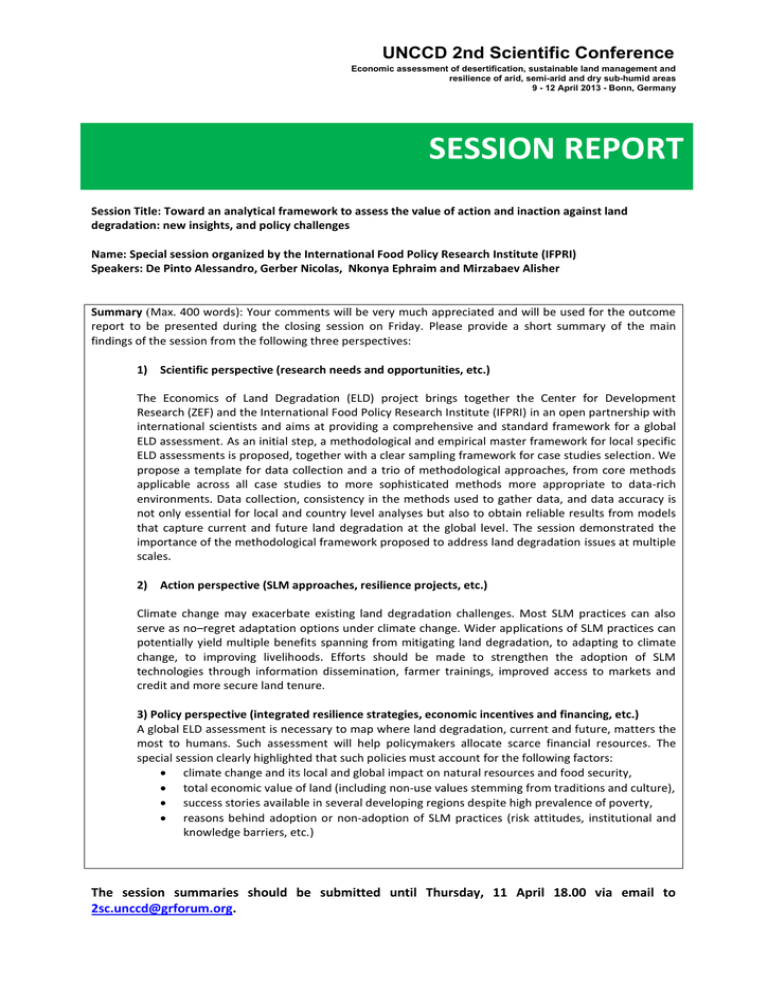
UNCCD 2nd Scientific Conference Economic assessment of desertification, sustainable land management and resilience of arid, semi-arid and dry sub-humid areas 9 - 12 April 2013 - Bonn, Germany SESSION REPORT Session Title: Toward an analytical framework to assess the value of action and inaction against land degradation: new insights, and policy challenges Name: Special session organized by the International Food Policy Research Institute (IFPRI) Speakers: De Pinto Alessandro, Gerber Nicolas, Nkonya Ephraim and Mirzabaev Alisher Summary (Max. 400 words): Your comments will be very much appreciated and will be used for the outcome report to be presented during the closing session on Friday. Please provide a short summary of the main findings of the session from the following three perspectives: 1) Scientific perspective (research needs and opportunities, etc.) The Economics of Land Degradation (ELD) project brings together the Center for Development Research (ZEF) and the International Food Policy Research Institute (IFPRI) in an open partnership with international scientists and aims at providing a comprehensive and standard framework for a global ELD assessment. As an initial step, a methodological and empirical master framework for local specific ELD assessments is proposed, together with a clear sampling framework for case studies selection. We propose a template for data collection and a trio of methodological approaches, from core methods applicable across all case studies to more sophisticated methods more appropriate to data-rich environments. Data collection, consistency in the methods used to gather data, and data accuracy is not only essential for local and country level analyses but also to obtain reliable results from models that capture current and future land degradation at the global level. The session demonstrated the importance of the methodological framework proposed to address land degradation issues at multiple scales. 2) Action perspective (SLM approaches, resilience projects, etc.) Climate change may exacerbate existing land degradation challenges. Most SLM practices can also serve as no–regret adaptation options under climate change. Wider applications of SLM practices can potentially yield multiple benefits spanning from mitigating land degradation, to adapting to climate change, to improving livelihoods. Efforts should be made to strengthen the adoption of SLM technologies through information dissemination, farmer trainings, improved access to markets and credit and more secure land tenure. 3) Policy perspective (integrated resilience strategies, economic incentives and financing, etc.) A global ELD assessment is necessary to map where land degradation, current and future, matters the most to humans. Such assessment will help policymakers allocate scarce financial resources. The special session clearly highlighted that such policies must account for the following factors: climate change and its local and global impact on natural resources and food security, total economic value of land (including non-use values stemming from traditions and culture), success stories available in several developing regions despite high prevalence of poverty, reasons behind adoption or non-adoption of SLM practices (risk attitudes, institutional and knowledge barriers, etc.) The session summaries should be submitted until Thursday, 11 April 18.00 via email to 2sc.unccd@grforum.org. UNCCD 2nd Scientific Conference Economic assessment of desertification, sustainable land management and resilience of arid, semi-arid and dry sub-humid areas 9 - 12 April 2013 - Bonn, Germany
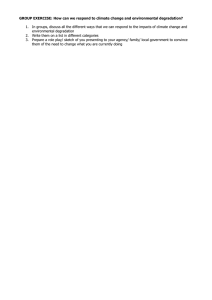
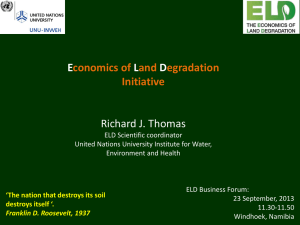
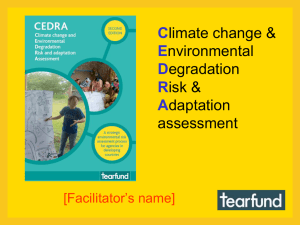
![Pre-workshop questionnaire for CEDRA Workshop [ ], [ ]](http://s2.studylib.net/store/data/010861335_1-6acdefcd9c672b666e2e207b48b7be0a-300x300.png)
